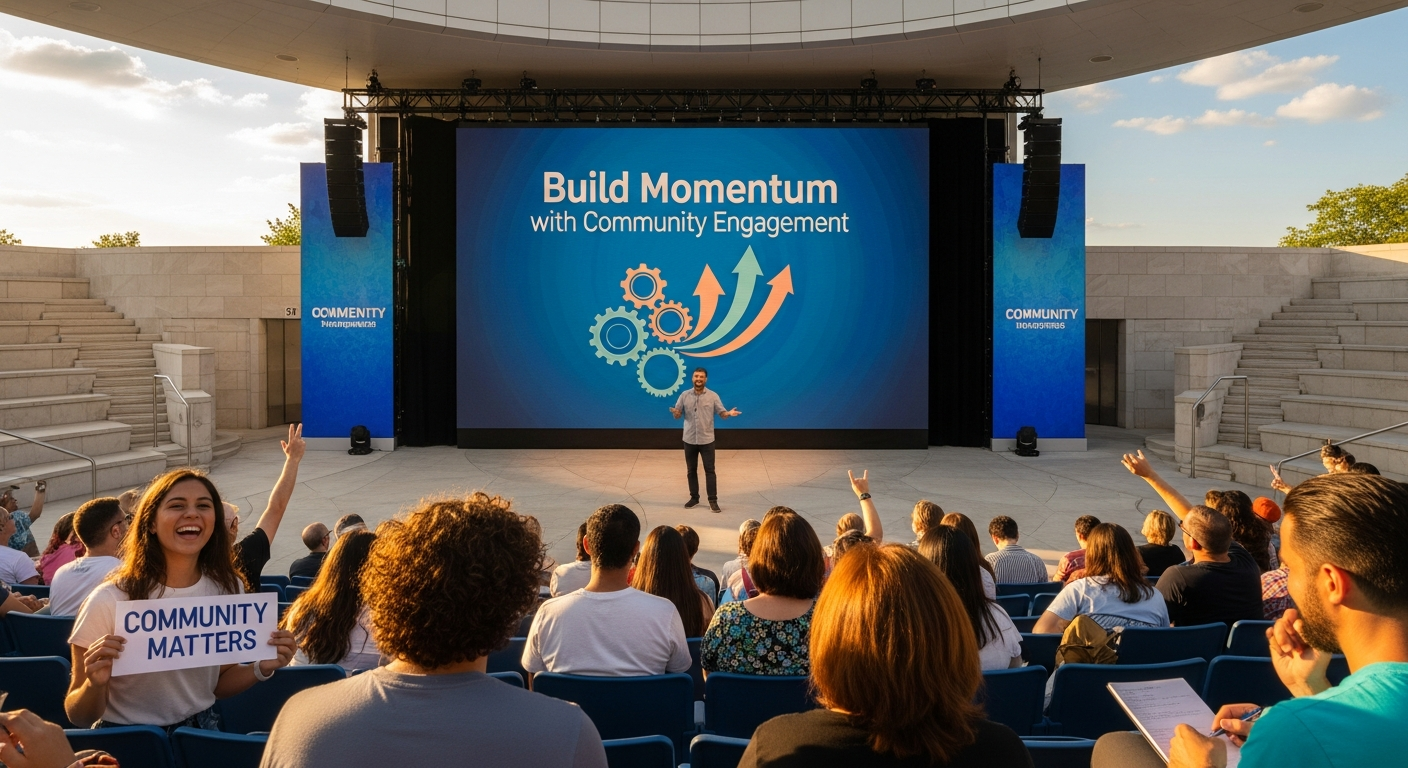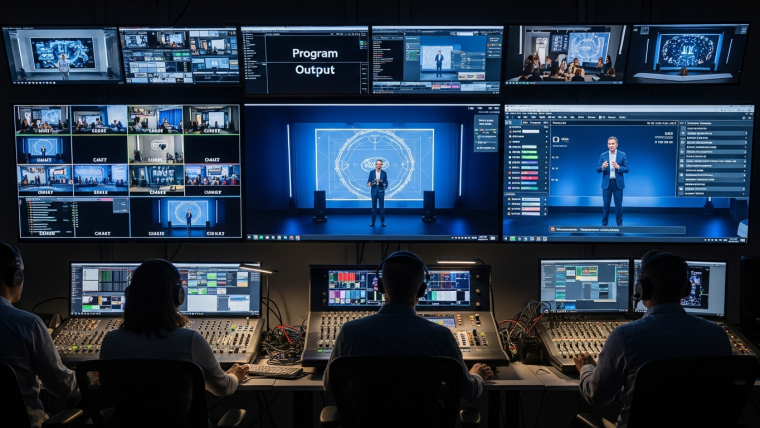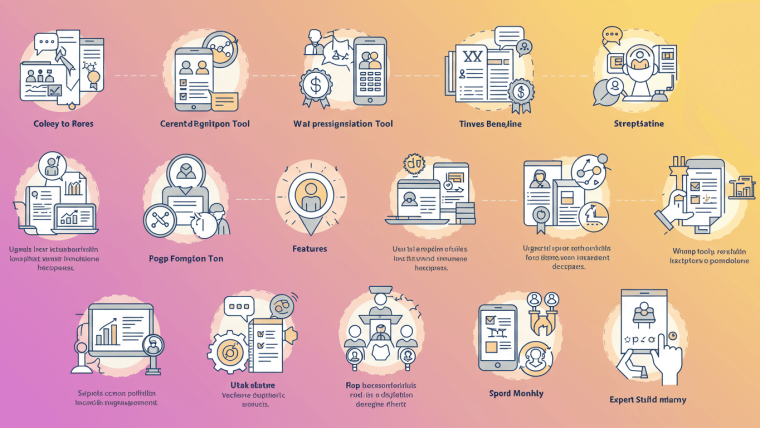Virtual event success hinges on strategic promotion, clear value communication, and audience engagement. By combining email marketing, social media outreach, speaker partnerships, content marketing, and optimized registration experiences, organizers can boost registrations and attendance. Consistent pre-event engagement and retargeting strategies build anticipation, while community-building efforts foster meaningful interactions, ensuring attendees show up and gain value from your online events.
Virtual events have transformed from a pandemic necessity to a permanent fixture in the business world. Over the past few years, companies, educational institutions, and organizations of all sizes have realized that online gatherings are not just temporary substitutes—they offer unique opportunities for engagement, scalability, and global reach that in-person events often cannot match. Yet despite their advantages, many organizers continue to struggle with a fundamental challenge: getting people to actually show up. Unlike in-person gatherings, where attendees make a tangible commitment by traveling to a physical venue, virtual events face distinctive promotional hurdles, including digital distractions, competing online content, and a lack of perceived obligation. The good news? With a carefully planned strategy, you can overcome these challenges, build buzz, drive registrations, and cultivate an audience that is genuinely excited to attend, participate, and engage with your online event content from start to finish.
Start with Strategic Pre-Planning

Before diving into promotional tactics, lay the groundwork for success. Your promotional strategy should align with your event goals, target audience, and available resources.
Define Your Value Proposition
Clearly articulate what makes your virtual event worth attending. Are you offering exclusive insights from industry leaders? Providing hands-on training that attendees can’t get elsewhere? Creating networking opportunities with hard-to-reach professionals? Your value proposition becomes the foundation for all promotional messaging.
Choose the Right Platform and Format
Your choice of platform affects how you can promote your event. Webinar platforms like Zoom or GoToWebinar offer different promotional features than event platforms like Hopin or Eventbrite. Consider which platform best supports your promotional goals, whether that’s social sharing capabilities, registration page customization, or integration with email marketing tools.
Set Registration Goals and Timeline
Establish specific registration targets and create a promotional timeline working backward from your event date. Most successful virtual events begin promotion 4-6 weeks in advance, with increased intensity in the final two weeks.
Leverage Email Marketing Effectively
Email remains one of the highest-converting channels for virtual event promotion, but generic blast emails won’t cut it.
Defining Your Target Audience
Understanding who you want to attend your virtual event is crucial for successful promotion. Identify audience segments based on demographics, job roles, industry, interests, or prior engagement with your brand. Create detailed buyer personas to visualize their needs, motivations, and challenges. Knowing your audience helps tailor messaging, choose appropriate channels, and design content that resonates. Consider their preferred platforms, communication styles, and times they are most likely to engage. Segmenting your audience allows for personalized invitations and follow-ups, increasing registration rates. A clear understanding of your target attendees ensures your promotional efforts reach the right people, improves engagement, and maximizes ROI for your virtual event marketing campaigns.
Segment Your Audience
Create targeted email campaigns for different audience segments. Your messaging to existing customers should differ from outreach to cold prospects. Consider segments based on industry, job role, previous event attendance, or engagement level with your brand.
Craft Compelling Subject Lines
Your subject line determines whether your promotional email gets opened. Test different approaches: question-based subject lines (“Ready to transform your marketing strategy?”), benefit-focused lines (“3 ways to double your conversion rate”), or urgency-driven options (“Last chance to secure your spot”).
Create an Email Sequence
Don’t rely on a single promotional email. Develop a sequence that builds momentum:
- Initial announcement with early bird pricing
- Speaker spotlights and agenda highlights
- Social proof and testimonials from previous events
- Final reminder with scarcity messaging
Maximize Social Media Reach
Social media platforms offer powerful tools for virtual event promotion, but each requires a tailored approach.
LinkedIn for Professional Events
LinkedIn excels for B2B virtual events and professional development content. Share behind-the-scenes content about your speakers, post thought-provoking questions related to your event topics, and encourage your speakers to share the event with their networks. LinkedIn Events can help you track RSVPs and send updates to interested users.
Twitter for Real-Time Engagement
Create a unique event hashtag and use it consistently across all promotional content. Twitter’s fast-paced nature makes it perfect for sharing quick tips, speaker quotes, and countdown posts. Engage with industry conversations and subtly weave in mentions of your upcoming event.
Facebook for Community Building
Facebook Groups related to your event topic can be goldmines for promotion, but focus on adding value rather than obvious self-promotion. Answer questions, share insights, and naturally mention your event when relevant to the discussion.
Instagram for Visual Storytelling
Use Instagram Stories and posts to showcase your speakers, share behind-the-scenes preparation content, and create visually appealing countdown posts. Instagram’s visual nature works well for highlighting key statistics or quotes that will be covered in your event.
Partner with Speakers and Influencers
Your speakers and industry influencers can become your most powerful promotional allies.
Create Speaker Promotion Kits
Provide your speakers with ready-made promotional materials, including social media posts, email templates, and branded graphics. Make it as easy as possible for them to share information about the event with their audiences.
Leverage Speaker Networks
Encourage speakers to mention the event in their newsletters, blogs, or podcast appearances. Many speakers have existing platforms and audiences that align perfectly with your target demographic.
Collaborate with Industry Influencers
Reach out to relevant industry influencers who might be interested in promoting your event to their followers. This could involve guest posting, cross-promotion, or simple social media mentions in exchange for free event access.
Optimize Your Registration Experience
Your promotional efforts will fall flat if your registration process creates friction.
Design Compelling Landing Pages
Create dedicated landing pages for your virtual event that clearly communicate value, showcase speakers, and make registration simple. Include social proof like testimonials from previous events or notable attendee companies.
Minimize Registration Steps
Reduce barriers to registration by asking only for essential information upfront. You can always gather additional details through post-registration surveys or during the event itself.
Offer Incentives
Early bird pricing, exclusive resources, or bonus content can motivate fence-sitters to register. Limited-time offers create urgency that drives action.
Use Content Marketing to Build Interest

Content marketing helps establish your expertise and builds anticipation for your virtual event.
Publish Related Blog Posts
Create blog content that addresses topics you’ll cover in more depth during the event. By producing insightful, informative, and well-researched articles related to your event themes, you give your audience a reason to engage with your brand ahead of time. These blog posts can highlight key issues, explore industry trends, or provide actionable tips that attendees can immediately apply. This approach positions your event as the natural next step for readers who want to deepen their understanding, learn from experts, or gain exclusive insights. Well-crafted content not only builds anticipation but also establishes your authority on the subject, encourages social sharing, and increases the likelihood that readers will register for the event to continue their learning journey.
Share Speaker Interviews
Conduct brief interviews with your speakers about the topics they’ll present during the event. These interviews offer a unique opportunity to showcase the expertise, insights, and personality of each speaker while giving your audience a preview of the valuable content they can expect. By sharing these interviews across multiple channels—such as blogs, social media, newsletters, or video platforms—you not only generate excitement but also establish credibility for your event. Highlighting key takeaways, interesting anecdotes, or practical advice in these interviews can spark curiosity and engagement, encouraging potential attendees to register. This strategy provides a compelling reason for your audience to participate and ensures that they understand the tangible benefits of attending your virtual event.
Create Teaser Videos
Conduct brief interviews with your speakers about the topics they’ll present during the event. These interviews offer a unique opportunity to showcase the expertise, insights, and personality of each speaker while giving your audience a preview of the valuable content they can expect. By sharing these interviews across multiple channels—such as blogs, social media, newsletters, or video platforms—you not only generate excitement but also establish credibility for your event. Highlighting key takeaways, interesting anecdotes, or practical advice in these interviews can spark curiosity and engagement, encouraging potential attendees to register. This strategy provides a compelling reason for your audience to participate and ensures that they understand the tangible benefits of attending your virtual event.
Implement Retargeting Strategies
Not everyone will register on their first exposure to your event promotion.
Set Up Website Tracking
Install tracking pixels on your event landing pages to create retargeting audiences for social media ads. This allows you to stay top-of-mind with people who showed initial interest but didn’t register.
Create Follow-Up Sequences
Develop automated email sequences for people who visited your registration page but didn’t complete sign-up. Address common objections and highlight different aspects of the event’s value.
Build Momentum with Community Engagement

Create a sense of community and anticipation among your registrants before the event begins.
Start Conversations Early
Use your event platform’s community features or create dedicated social media groups where attendees can introduce themselves and start networking before the event.
Share Preparation Materials
Send registered attendees pre-event resources like reading lists, worksheets, or introductory videos. This increases investment in the event and reduces no-show rates.
Provide Regular Updates
Keep registrants engaged with regular updates about agenda changes, new speakers, or additional resources. Consistent communication maintains interest and excitement.
Make Virtual Events Stick
Promoting a virtual event successfully requires a multi-channel approach that addresses the unique challenges of online gatherings. Focus on clearly communicating value, making registration frictionless, and building genuine excitement about the content and connections your event will provide.
Start your promotional efforts early, but don’t front-load all your energy. The most effective virtual event promotion builds momentum over time, with the highest intensity in the final weeks before your event. Remember that virtual events compete not just with other events, but with every other demand on your audience’s time and attention.
By implementing these strategies systematically and tracking what works best for your specific audience, you’ll develop a promotional playbook that drives consistent registration and attendance for all your future virtual events.
Conclusion:
Promoting virtual events effectively requires a multi-faceted strategy that emphasizes value, engagement, and ease of participation. By planning early, leveraging multiple channels, collaborating with speakers and influencers, and nurturing registrants with content and updates, you can maximize attendance and create a memorable online experience. Consistency, creativity, and clear communication transform virtual events from passive webinars into dynamic, impactful experiences that drive business goals.
Frequently Asked Questions (FAQ):
-
Why do virtual events have lower attendance than in-person events?
Virtual events face challenges like screen fatigue, competing online distractions, and low perceived commitment. Effective promotion, clear value communication, and pre-event engagement help overcome these barriers. -
How early should I start promoting a virtual event?
Begin promotion 4–6 weeks before the event, with increasing intensity in the final two weeks. Early promotion allows time for audience segmentation, messaging, and engagement strategies. -
Which platforms work best for virtual event promotion?
Webinar platforms (Zoom, GoToWebinar) and event platforms (Hopin, Eventbrite) each offer different promotional tools. Choose based on social sharing features, landing page customization, and email marketing integration. -
How can speakers and influencers help promote my event?
Speakers and influencers can share the event with their networks through social media, newsletters, or content collaborations. Providing ready-to-use promotion kits makes it easy for them to support your event. -
What type of content can boost virtual event registrations?
Blog posts, teaser videos, speaker interviews, and behind-the-scenes content help build anticipation, demonstrate value, and position the event as a must-attend experience. -
How can I reduce registration friction and increase sign-ups?
Simplify landing pages, minimize required fields, and offer incentives like early bird pricing or exclusive content. Clear messaging and social proof also improve conversion rates. -
What role does email marketing play in event promotion?
Segmented email campaigns with compelling subject lines, follow-up sequences, and reminders effectively nurture leads, build excitement, and drive higher registration and attendance rates. -
How do I keep attendees engaged before the event?
Create pre-event communities, share preparation materials, and provide regular updates. Engaging registrants early increases commitment and reduces no-show rates. -
Should I use retargeting strategies for virtual events?
Yes. Track landing page visitors with pixels and run follow-up campaigns to capture those who showed interest but didn’t register. -
How do I measure virtual event promotion success?
Track registrations, attendance rates, engagement metrics (social shares, comments, clicks), and post-event feedback to evaluate campaign effectiveness. -
Can virtual events build long-term customer relationships?
Absolutely. By delivering value, facilitating networking, and maintaining engagement before, during, and after the event, virtual events strengthen brand trust and customer loyalty.








Webinar Analytics: A Complete Guide to Measuring Success and Improving Performance
The Ultimate Webinar Follow-Up Strategy to Turn Attendees into Customers
Webinar Accessibility Best Practices: How to Make Your Online Events Inclusive for All
Webinar Personalization: Tailoring Content to Audience Segments for Maximum Engagement